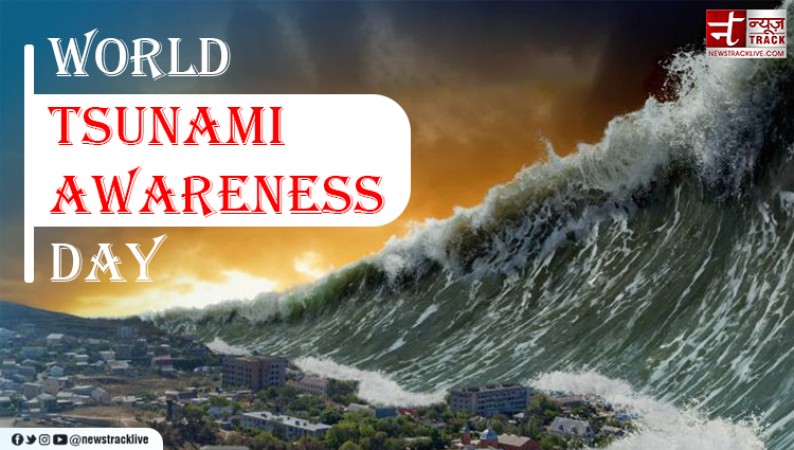
On November 5th, 2023, the world will observe World Tsunami Awareness Day, an annual event dedicated to raising awareness about the devastating impact of tsunamis and the importance of building resilient communities to mitigate these natural disasters. This year's theme, "Fighting Inequality for a Resilient Future," highlights the crucial role of equitable disaster preparedness in ensuring the safety and well-being of all, regardless of socioeconomic status, location, or other factors. This article delves into the significance of World Tsunami Awareness Day, the challenges posed by tsunamis, and the global effort to combat inequality and enhance resilience in the face of this natural calamity.
Understanding Tsunamis
Tsunamis are one of nature's most destructive forces, often triggered by underwater earthquakes, volcanic eruptions, or landslides. These immense sea waves can travel at astonishing speeds across entire ocean basins and, upon reaching the coastline, unleash their destructive power, causing widespread devastation. Tsunamis are unpredictable in terms of their occurrence and timing, making preparedness and early warning systems crucial in saving lives and minimizing damage.
Challenges Posed by Tsunamis
Tsunamis can have devastating consequences, claiming lives and causing extensive destruction to coastal communities. These events often lead to massive loss of life, property, infrastructure, and disrupt the social and economic fabric of affected regions. Vulnerable communities face greater challenges in preparing for and responding to tsunamis, exacerbating existing inequalities and injustices.
The Global Perspective
In 2015, the United Nations General Assembly declared November 5th as World Tsunami Awareness Day, recognizing the need to raise awareness about the risks and impacts of tsunamis. This date was chosen to commemorate the anniversary of the 1854 Nankai earthquake and tsunami in Japan, a historical event that took many lives and left lasting scars on the nation's memory.
The theme for World Tsunami Awareness Day in 2023, "Fighting Inequality for a Resilient Future," underscores the importance of addressing inequality in disaster preparedness and response. Inequality can manifest in various forms, such as unequal access to resources, education, information, and decision-making power. These disparities make some communities more vulnerable to tsunamis, as they lack the means and knowledge to protect themselves effectively.
Global Efforts to Combat Inequality
To combat inequality in the face of tsunamis and other natural disasters, global initiatives are striving to create a more equitable and resilient future:
Early Warning Systems: The development and enhancement of early warning systems are critical. These systems provide timely information to vulnerable communities, giving them precious moments to evacuate to safer ground.
Community Engagement: Empowering local communities and involving them in disaster risk reduction efforts is essential. This includes educating communities on tsunami preparedness and involving them in decision-making processes.
Education and Awareness: Promoting education and awareness about tsunamis is key to reducing vulnerability. This includes teaching people how to recognize natural warning signs and respond effectively.
Infrastructure Development: Building resilient infrastructure and ensuring access to safe housing and public spaces are crucial in protecting vulnerable populations from tsunamis' impacts.
International Cooperation: Global collaboration and support are necessary to help less developed countries build their capacity to respond to tsunamis effectively.
World Tsunami Awareness Day 2023 serves as a reminder that tsunamis are a natural hazard that can affect anyone, regardless of their socioeconomic status or location. By focusing on "Fighting Inequality for a Resilient Future," the international community acknowledges the need to address disparities and ensure that all individuals and communities have the tools and knowledge to prepare for and respond to tsunamis. Through global efforts and individual actions, we can work towards a more equitable and resilient world, where the devastating impact of tsunamis is minimized, and the well-being of all is protected.